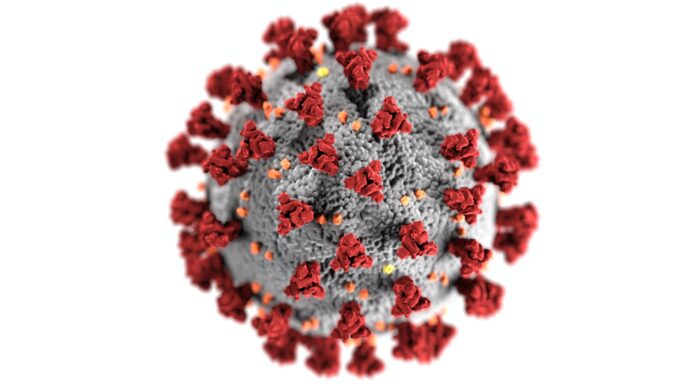
By Megan Sayles, AFRO Business Writer
After three years of living through a global pandemic, the Department of Health and Human Services (HHS) is set to end the U.S. Public Health Emergency (PHE) for COVID-19 on May 11. This declaration comes a month after President Joe Biden signed a bipartisan congressional resolution to terminate the U.S. national emergency for the virus.
According to the Centers for Disease Control and Prevention (CDC), the U.S. death toll from COVID-19 stands at 1,130,662.
During the pandemic, funeral homes had to adapt their operations in accordance with federal and local social distancing guidelines, while also honoring the lives of those that died and supporting their loved ones. The mortuary businesses turned to live streaming for memorial services.
“Our personnel were being affected just like everybody else. We were being infected, and unfortunately, I lost two employees,” said Erich W. March, vice president of March Funeral Homes and president of King Memorial Park.
“It got to a point where our funeral homes and many other funeral homes were overwhelmed by the sheer number of cases that we were asked to handle on the cemetery side, as well as on the funeral home side.”
March Funeral Homes was started by William Carrington March and his wife, Julia Roberta March. The couple had humble beginnings in 1957, as they launched their business out of their East Baltimore home. It’s grown to become one of the largest Black- and family-owned mortuary and cemetery businesses on the East Coast, with locations in Maryland, Virginia and D.C.
William and Roberta’s four children, Victor, Erich, Annette and Cynthia, took over operations in 1988.
Due to government restrictions on congregating, March Funeral Homes could only have next of kin attend funeral services at one point, regardless of whether the death was caused by COVID-19. March said this drastically changed the integrity of celebrations of life.
The restrictions were gradually relaxed, allowing more people to attend funeral services.
March pointed out that this was not the first time that the mortuary company encountered a highly-infectious disease.
In the 1980s, March Funeral Homes was one of the only mortuaries that would service HIV and AIDS victims before Congress passed the Americans With Disabilities Act in 1990 to outlaw discrimination against individuals affected by the disease.
“I caught COVID twice with no real, serious side effects– thank God– but I did have employees hospitalized, some for months at a time. It affected me only because I was concerned for my workforce,” said March. “I was also concerned about the fact that we were so overwhelmed that we ran out of places to store human remains. We had to have emergency refrigeration to keep the remains from decomposing. It was stressful on a lot of different levels.”
At the height of the pandemic, March said funeral home employees across the country had to lobby the federal government to be classified as emergency responders, so that they could be included in the first rounds of vaccinations.
“We posted signs at all our facilities declaring, ‘Heroes work here too,’” said March.
Unlike March Funeral Homes, E. Vaughn Wray Funeral Establishment, located in Norfolk, Va., did not experience a significant increase in funeral services because of the pandemic.
However, founder, Eric Vaugn Wray II, said during the lockdown, his mortuary saw more deaths related to suicide and overdose. In the early days of the pandemic, Wray said he struggled to secure personal protective equipment (PPE) for his employees.
“We had a lot of masking and sanitizing. We were the first funeral home in Hampton Roads to have a professional come out and do sanitizing,” said Wray. “We did not have any cases of outbreaks or anyone claiming they caught COVID from attending our services, so that was a big plus for us.”
Wray spent his teenage years working for the former Pretlow Funeral Home in Norfolk, Va. He continued serving funeral homes across Virginia as a funeral director and general manager until he opened E. Vaughn Wray Funeral Establishment in 2015.
During the pandemic, Wray’s mother died from complications of COVID-19, and his funeral home had the honor of organizing her service.
After discovering that Black communities were being hit the hardest by the pandemic, Wray took it upon himself to disseminate information about treating the virus and emergency relief funds.
Wray said he opposed the government’s restriction on capacity limits for funeral services.
“It didn’t help anybody. I think it was a vast government overreach. If a person had a family of 15, and only 10 people could come– that’s not fair to those other family members,” said Wray.
“It’s a day that you can’t get back, and I think a lot of people were cheated out of that. Putting a limit or a cap on how many people can come should have been at the discretion of the family, not the government.”
Antonio Green, director of the James H. Cole Home for Funerals, Inc. in Detroit, commended his staff for responding to the needs of their city.
His great-grandfather, James H. Cole Sr., established the funeral home in 1919, and the business has been passed down from generation to generation ever since.
Green’s leadership team prioritized the physical and psychological safety of their employees while navigating the COVID-19 pandemic. The mortuary company ensured that staff had access to sufficient PPE and online grief counseling to grapple with the overwhelming number of deaths in their community.
“While caring for the needs of a community in crisis, we also lost loved ones and had to carry the burden of grief while trying to keep ourselves and our loved ones safe,” said Green.
“It could be years before we truly understand the toll this pandemic has taken on us all, but one thing I know for sure is that we’re a resilient people, and we will come back stronger than ever.”
Megan Sayles is a Report for America Corps member.


